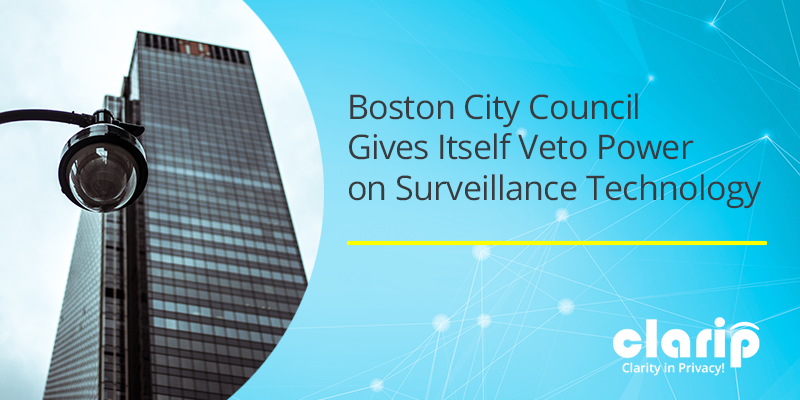Boston City Council Gives Itself Veto Power on Surveillance Technology

On Wednesday, October 20, the Boston City Council approved a law that states that surveillance technologies cannot be funded, acquired, or used without their approval. The Boston City Council also granted itself the authority to nix any novel uses of existing surveillance technology by city authorities. With a very clear privacy focus, the law also, prohibited school officials from sharing student information with Boston police except in cases of extreme emergencies.
The law is intended to make sure that safeguards remain in place for privacy. A stated motivation of Boston City Councilor, Michelle Wu, is to make sure that surveillance technologies “are deployed with transparency, public accountability, and democratic oversight.”
The Boston City Council is following the footsteps of other municipalities who have approved similar laws limiting government surveillance and information-sharing. They were preceded by communities such as Cambridge, Lawrence, and Somerville.
Some technologies and equipment that are likely to be regulated by the law are gunshot detection devices, X-ray vans, automatic license plate readers, social media scanning software, and biometric surveillance technology.
Kade Crockford, director of the “Technology for Liberty” program at the local ACLU chapter, expressed enthusiasm about the new law. Kade stated that surveillance, “like policing itself, disproportionately targets Black and brown people.” Accordingly, having accountability and oversight of surveillance technology is a change for the better in Kade’s eyes.
Facial recognition technology has been shown to be more accurate in correctly identifying white faces and comparatively more likely to produce false positives in black or brown faces. Some researchers have attributed this to the facial data fed into the algorithms consisting of majority white faces and being less experienced in distinguishing black and brown faces.
The other aspect of the law is its limitation on the distribution of student information to law enforcement. Specifically, under the new law, school safety specialists shall not collect student information except for creating student reports. Student reports are documents that describe criminal behavior. Student reports are only to be created under very specific circumstances, such as if a student has seriously injured someone, is determined to be a credible threat to school safety, or they are in possession either of a gun or specified controlled substances.
A motivation for the new limitations on sharing student information was the previous misuse of such information. School incident reports were used by immigration authorities to recommend their deportation.
Having passed the City Council, the law still needs to be approved by Acting Mayor Kim Janey.
Boston City Council’s conscientiousness about privacy is a sign of the times. Awareness of privacy concerns is increasing all across the country and all across the world. In this climate, its important for any business to stay up-to-date with privacy compliance. Thankfully, Clarip can help. Clarip provides data subject request automation, data mapping, consent management, and data risk intelligence. Visit us at www.clarip.com or call us at 1-888-252-5653 to learn more or schedule a demo!

 Data Risk Intelligence
Data Risk Intelligence Automated Data Mapping
Automated Data Mapping Do Not Sell/Do Not Share
Do Not Sell/Do Not Share Cookie Banner Solutions
Cookie Banner Solutions Consent & Preferences
Consent & Preferences Data Rights Requests
Data Rights Requests
